It’s More Than a Climb
Climbing + Mental Health
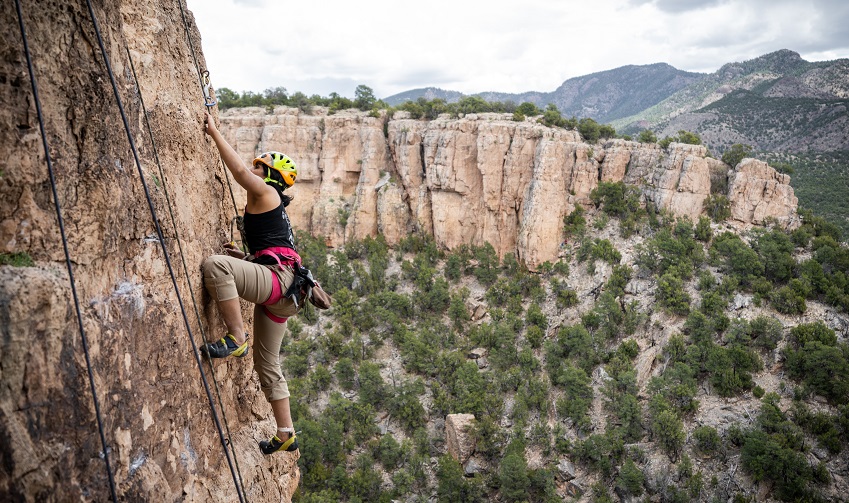
by Esha Mehta
Childhood trauma.
It is the gross, icky underbelly of the world we live in that many would rather not address. The reality of childhood trauma lies in the dark corners of shame that sneak out when you are least expecting it. It grabs you by the neck and forces you to take a good look into its ugly face. Staring into this monster’s eyes could destroy you, or worse, force you to face realities that you may not be ready to face. The effects of developmental trauma seep into your veins, like icy water that shocks the system. It follows you daily with its trigger that cause dissociation, a very real disconnect with reality.
Dissociation can take on many forms. It is an experience that can be as harmless as finding yourself at home after a long jaunt in the woods, safe and sound with little to no recollection on how you made it there. It could be an experience of missing your exit because you checked out for a few moments. Both of these are examples of dissociation that we all experience. On the other end of the spectrum are experiences such as symptoms of flashbacks – reliving traumatic experiences in the “here and now” as if you were back in the “there and then.” When I am caught in a flashback, every fiber of my being is reliving a traumatic event from the past. I am transported back to the scene, with all the smells, textures, sounds, and even tastes from that moment. Reality and I have separated, though what I am experiencing is extremely real. The far end of dissociation is Dissociative Identity Disorder—arguably the most preventable mental health condition. Once known as Multiple Personality Disorder, or MPD, DID is formed during the ages of birth to about 9, when it is said that a child has fully integrated their personality. DID is caused by severe and prolonged childhood trauma of any kind and is marked by the person having two or more distinct alters with their own likes, dislikes, mannerisms, voices, and overall identity. It is important to note that DID can be caused by traumas other than abuse, such as natural disasters, medical procedures, or anything prolonged that the child’s mind deems traumatic enough to form alters. In my experience with DID, staying present is an extreme challenge. Along with traumatic flashbacks, nightmares, and other symptoms that accompany PTSD, DID adds a complexity that makes staying in the body, in the “here and now,” even harder.
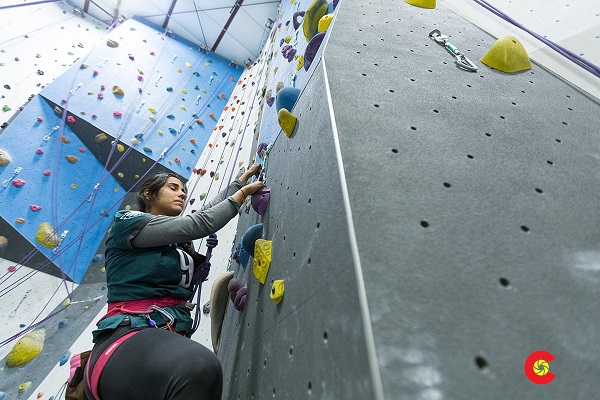
Esha climbing at club in Golden, CO. Photo by Cody Sowa


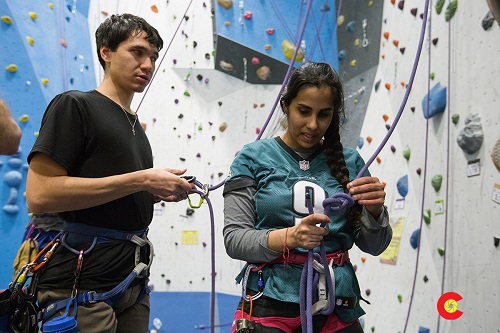
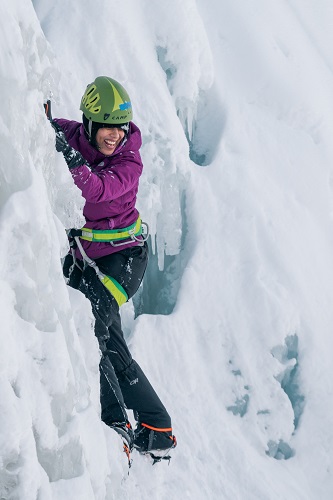
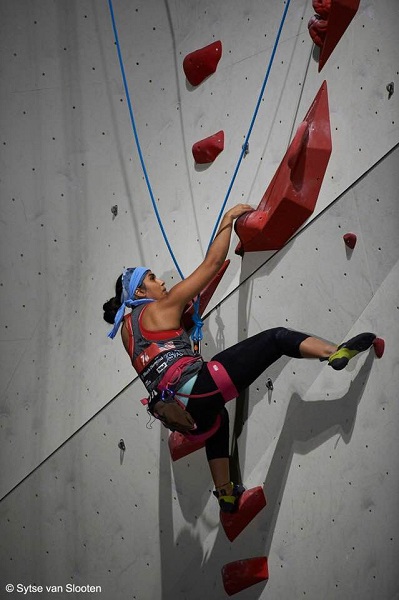
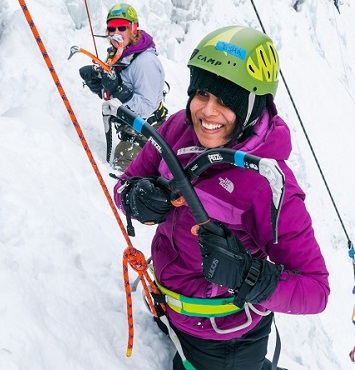
 Esha Mehta is a Paradox Sports Ambassador living in Boulder, CO. Born at 24 weeks, Esha has been blind since birth and at age 19, she attended the Colorado Center for the Blind for i
Esha Mehta is a Paradox Sports Ambassador living in Boulder, CO. Born at 24 weeks, Esha has been blind since birth and at age 19, she attended the Colorado Center for the Blind for i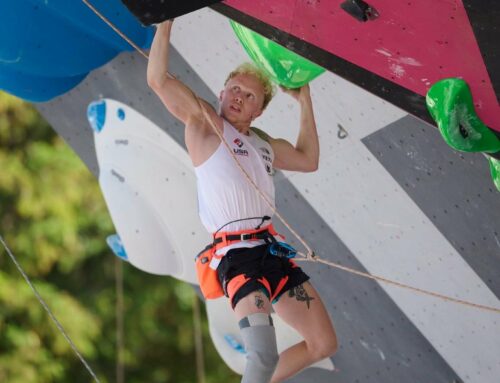
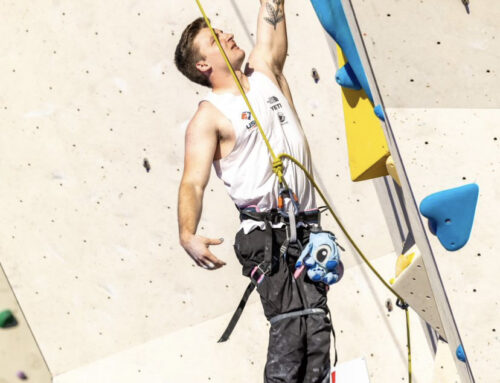
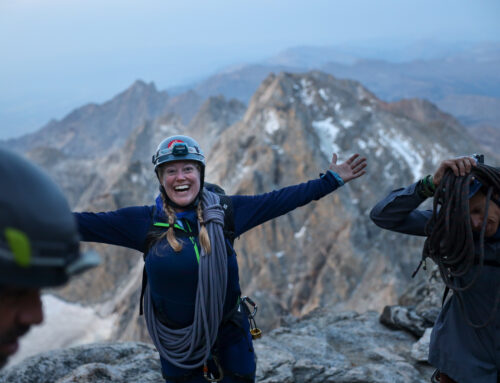
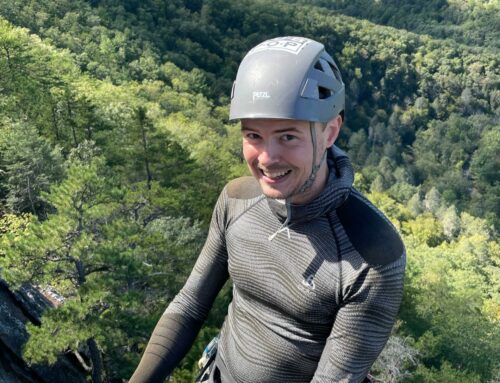
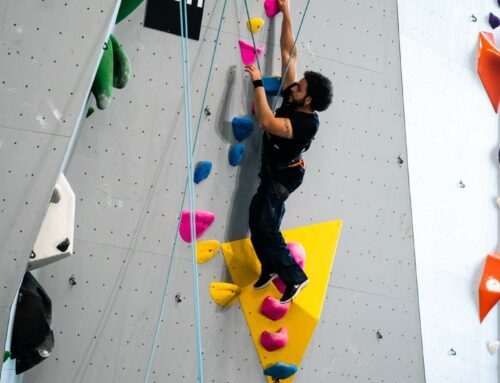
Leave A Comment
You must be logged in to post a comment.